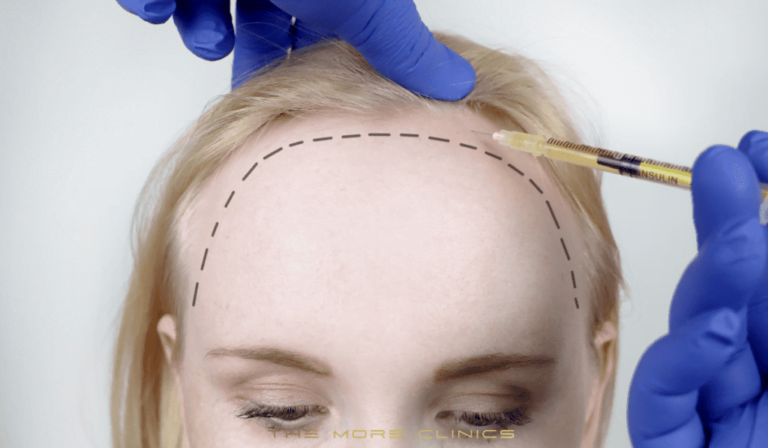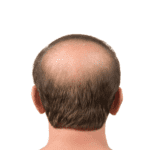Telogen Effluvium: All You Need to Know
Telogen Effluvium is a prevalent form of temporary hair loss due to a change in the number of hair follicles growing hair. Telogen effluvium is a form of temporary hair loss that usually happens after stress, a shock, or a traumatic event. Telogen effluvium commonly affects the scalp.
In this article, we explore the causes, symptoms, diagnosis, and treatment of telogen effluvium, along with dietary modifications that may provide relief. Discover more about this condition and learn how to manage it effectively.
What is telogen effluvium?
Our hair follows a natural cycle, including a growth phase (anagen) and a rest phase (telogen). In Telogen Effluvium, a significant number of hairs shift into the telogen phase prematurely (around 30%), leading to noticeable hair loss.
The affected hair may either gradually thin or fall out in clumps. This condition usually affects the scalp but can also impact other areas, such as the eyebrows and beard.
Fortunately, it’s often temporary hair loss, with some cases resolving without treatment.

Symptoms and Causes
The symptoms of telogen effluvium can vary, but the most common are thinning hair in several areas, excessive shedding of hair and a decrease in overall density.
Common causes of Telogen effluvium:
- Severe emotional stress: Major life events like losing a loved one, going through a divorce, or dealing with intensive work stress can trigger telogen effluvium.
- Physical stress: Accidents, surgery, severe illness, or rapid weight loss can lead to this condition.
- Pregnancy and childbirth: The hormonal changes and stress associated with pregnancy and childbirth can result in hair loss.
- Menaopause: Hormonal imbalances during menopause may result in telogen effluvium.
- Medications: Certain medications such as antidepressants, beta-blockers, and nonsteroidal anti-inflammatory drugs (NSAID) can cause telogen effluvium.
- Poor nutrition: A diet lacking in essential vitamins, minerals, and proteins can destabilize the hair growth cycle, causing hair to enter the telogen phase prematurely.
Diagnosis
Diagnosing Telogen Effluvium involves a comprehensive medical history and hair analysis. Your doctor may perform a ‘pull test’ or examine hairs under a microscope to determine the hair growth phase.
Treatment Options
Treatment for Telogen Effluvium is primarily aimed at addressing the underlying cause.
This could include:
- Stress management,
- Dietary changes: consuming a balanced, nutritious diet with plenty of protein, vitamins, and minerals.
If the underlying cause is due to medications, your doctor may recommend switching to alternative options.
A Word from The More Clinics
At The More Clinics, we understand how distressing hair loss can be. Rest assured, Telogen Effluvium is usually temporary and reversible with the right approach and treatment. Our team of professionals is dedicated to guiding you on your journey to better hair health.
Our experienced medical staff have been successfully helping men and women dealing with hair loss for many years. We offer a wide range of treatments that can slow down, stop or reverse the effects of male pattern baldness. Contact us today to discuss your individual needs and to find out which treatment options are best suited for you.
GET A FREE CONSULTATION!
Let’s Start Planning Your Treatment %100 Guarantee Results.






